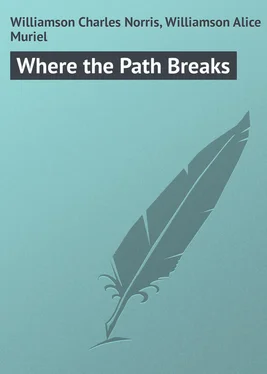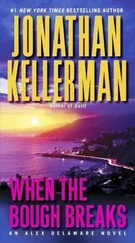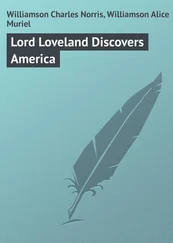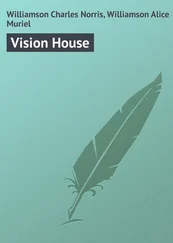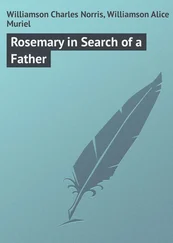Charles Williamson - Where the Path Breaks
Здесь есть возможность читать онлайн «Charles Williamson - Where the Path Breaks» — ознакомительный отрывок электронной книги совершенно бесплатно, а после прочтения отрывка купить полную версию. В некоторых случаях можно слушать аудио, скачать через торрент в формате fb2 и присутствует краткое содержание. Жанр: foreign_prose, на английском языке. Описание произведения, (предисловие) а так же отзывы посетителей доступны на портале библиотеки ЛибКат.
- Название:Where the Path Breaks
- Автор:
- Жанр:
- Год:неизвестен
- ISBN:нет данных
- Рейтинг книги:5 / 5. Голосов: 1
-
Избранное:Добавить в избранное
- Отзывы:
-
Ваша оценка:
- 100
- 1
- 2
- 3
- 4
- 5
Where the Path Breaks: краткое содержание, описание и аннотация
Предлагаем к чтению аннотацию, описание, краткое содержание или предисловие (зависит от того, что написал сам автор книги «Where the Path Breaks»). Если вы не нашли необходимую информацию о книге — напишите в комментариях, мы постараемся отыскать её.
Where the Path Breaks — читать онлайн ознакомительный отрывок
Ниже представлен текст книги, разбитый по страницам. Система сохранения места последней прочитанной страницы, позволяет с удобством читать онлайн бесплатно книгу «Where the Path Breaks», без необходимости каждый раз заново искать на чём Вы остановились. Поставьте закладку, и сможете в любой момент перейти на страницу, на которой закончили чтение.
Интервал:
Закладка:
For a few days he had been very silent, asking no questions. He seemed always to be thinking. By Schwarz’s orders he was left alone. Then, one morning, he was surprised by the news that he was well enough to sit up. When he had been propped with pillows, the nurse he liked best – the one with the hard features and soft eyes – slipped a roll of dilapidated newspapers under the listless hands that lay on the turned-over sheet.
“English,” she said, and saw that his eyes brightened.
His left hand, with the tell-tale mutilated finger, began painfully to open out the heavy roll. He could not help much with the other hand, for his right arm had been so injured that it had been strapped to his side for weeks, and the muscles had withered. They would recover tone, and the arm its strength, Schwarz prophesied, but he was only just beginning again to use his right hand.
This was the first time he had read anything except the notices posted up on the hospital walls, which forbade loud talking and other offenses. To see the Illustrated London News and the Daily Mail and the Chronicle , dated on days of September, made him feel more than ever that he had died, and come back to earth on sufferance as a ghost. For him there had been no autumn nor winter. The world had ended on a hot night in August. There had been summer, and then blackness. Now it was spring.
September 10th. September 11th. September 13th.
The Illustrated London News lay on top. He laid back the cover. There was a battle scene on the first page. It looked vaguely familiar. British lancers and helmeted German Uhlans were fighting furiously together. Apparently it was night. The background was lit by flames from a burning village. It was an impressionist effect, well presented. The man felt very tired and old as he looked at the picture. Pains throbbed through his head and body and limbs, reminding him of each wound now healed. He turned over the page and several others. Near the middle of the paper he opened to one entirely given up to small photographs of officers. “Dead on the Field of Honor,” he read. Under each portrait were a few lines of fine print. He began with the left-hand side, at the top. Faces of strangers. Then two he recognized, with a leap of the heart. One had been an acquaintance, one an old friend. Their names rushed back to him, as if spoken by their own voices, even before he had time to read. Human interests surged round him as he lay, every-day interests of life as he had laid it down. “Dear old Charley Vance. Dead! And Willoughby…”
A photograph in the middle of the page seemed to tear itself from the paper and jump at his eyes. It was larger than the others grouped round it… “Good God!” broke from his lips.
He glanced around, startled. He was afraid that he had screamed the words. But evidently he had not made any sound. No one was noticing him. Most of the men near by, all surgical cases, were resting quietly. Several nurses were talking at a distance, their broad, reliable backs turned his way.
It was his own photograph he was looking at … the face of the ugly man he had seen in the lost dream, as in a dim mirror. Underneath was a name. He would know , now – his own name, and – the rest. All his blood seemed to pour away from his heart. A queer mist swam before his eyes. He tried to wink it away, but could not, and had to wait till it faded, leaving a slow shower of silver sparks.
“Killed in action, on the night of August 18th, Sir John Denin, 16th baronet, Captain – th Lancers, aged 32. See paragraph on following page.”
The man turned the leaf over. There was the paragraph.
“Captain Sir John Richard Stuart Denin, killed in the fatal night fighting near –, where his regiment was caught by the enemy’s artillery fire in a wood, was a well-known figure in the world. It will be remembered that on the death of his uncle, Sir Stuart Denin, from whom the title passed to him, the unentailed estates were left by will to a distant cousin and favorite of the late baronet. Sir John was advised by his friends to contest the will, but refused to do so, saying his uncle had every right to dispose of his property as he chose. This generosity was considered quixotic, but had a romantic reward a few months later when an aunt of the new baronet’s mother bequeathed him one of the most beautiful and historic of the ancient black and white houses in Cheshire, Gorston Old Hall, and half a million pounds. On receiving this windfall of fortune which was entirely unexpected, it will be recalled that Sir John resigned from the army, he being at the time a first lieutenant in the – th Lancers. Two years later, on the outbreak of the war, he at once offered his services, which were accepted, and he was given a captaincy in his old regiment, leaving for the front with the first of our Expeditionary Force, and he was, unhappily, also among the first to fall. On the day of his departure Sir John was quietly married at his own village church in Gorston, Cheshire, to Miss Barbara Fay of California, U.S.A., who is thus left a widow without having been a wife. Everything he possessed, including Gorston Old Hall, passes by the will of the deceased officer to his widow. As Miss Fay, Lady Denin was considered one of the most beautiful American girls ever presented to their Majesties, she having made her début at an early court in the spring of 1913, or a little over a year before her wedding and widowhood. The mother of Lady Denin, though married to an American professor of Egyptology who died some years ago, has English blood in her veins; and is a near relative of Captain Trevor d’Arcy of the – th Gurkhas, now on the way to France with his gallant regiment. Captain d’Arcy’s photograph taken with his men at the time of the Durbar, appears on the following page, also that of the newly widowed Lady Denin. In the battle where Captain Sir John Denin met his death, he greatly distinguished himself by gallant conduct, and to him would have been due a signal success had not the German artillery rescued the defeated Uhlans and followed up their flight with a withering fire. Sir John succeeded in saving the life of his first lieutenant, the Honble. Eric Mantell, who was one of the few to escape this massacre, and who had the sad privilege of identifying his preserver’s mutilated body on the battlefield. Sir Eric had recovered sufficiently from his wounds to be present at the funeral, the remains of the dead hero having after some unavoidable delay been brought to England and buried in Gorston churchyard. Had Sir John lived, it is said that he would have been recommended for the Victoria Cross.”
The man who had died and been buried, whose body had been identified by his friend and taken home, fell back on the thin hospital pillow, and closed his eyes. He felt as if he had come to a blank wall, stumbled against it, and fallen. Then, suddenly, he realized that by turning over a page, he could see her face – the face of his wife.
CHAPTER III
He turned the page, but for a moment it was a blank, blurred surface, as if everything on it had been blocked out by order of the censor. He found himself counting his own heart-beats, and it was only as they slowed down that the page cleared, and the eyes he had seen in the lost dream looked up at him from the paper.
They gave him back himself. A thousand details of the past rushed upon him in a galloping army.
“Lady Denin, widow of Captain Sir John Denin,” he read. “She is shown in this photograph in her presentation dress, as Miss Barbara Fay.”
Barbara had disliked the photograph. He could see it now, in a silver frame on her mother’s writing desk, in the drawing-room of the little furnished house taken for the season in London. He had been shown into that room when he made his first call. Mrs. Fay had asked him to come, just when he was wondering how to get the invitation. And Mrs. Fay had given him one of those photographs. It occurred to him that she must also have given one to the newspaper. Barbara would not have wished it to be published. But he had thought it beautiful, and he thought it more than ever beautiful now.
Читать дальшеИнтервал:
Закладка:
Похожие книги на «Where the Path Breaks»
Представляем Вашему вниманию похожие книги на «Where the Path Breaks» списком для выбора. Мы отобрали схожую по названию и смыслу литературу в надежде предоставить читателям больше вариантов отыскать новые, интересные, ещё непрочитанные произведения.
Обсуждение, отзывы о книге «Where the Path Breaks» и просто собственные мнения читателей. Оставьте ваши комментарии, напишите, что Вы думаете о произведении, его смысле или главных героях. Укажите что конкретно понравилось, а что нет, и почему Вы так считаете.
